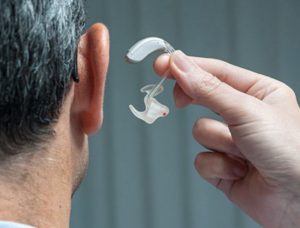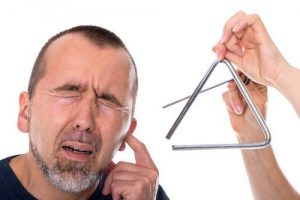Your hearing and lifestyle needs
When you have your hearing assessed, your HHP will want to discuss with you your hearing levels and how they may be affecting your communication and your day to day living. They will ask you certain things about your lifestyle. This is not intrusive, it’s to find out how your drop in hearing is affecting you. Some of the questions you may be asked include:
- Do you have the TV louder than your partner?
- Can you hear clearly on the telephone?
- Do you have trouble hearing in background noise?
- Do you have trouble following the proceedings in work meetings?
- Can you still hear the Minister clearly in church?

If you have a loved one with you at the appointment, they may also be asked about difficulties they’ve noticed you experience. Listen carefully to what your partner/family member says as they may have observed things you haven’t. Those closest to you are often affected by your decline in hearing levels. It’s a good idea think about your hearing issues prior to your appointment so you are well prepared to answer your Clinician’s questions on how your hearing is affecting your lifestyle.

Quiet vs. complex lifestyle
This is an important differentiation, as it will affect the level of technology you’ll need for your hearing aids.
Quiet lifestyle: If you are mostly at home, living alone or with one or two other house members. You may notice problems with the level of the television or clarity of sound on the telephone. If you listen to a lot of music, make sure you tell your HHP this as they will be able to set a music program on your hearing aids. If you have a more sedentary lifestyle, you won’t need a hearing aid with high end technology. Don’t pay for something you don’t need.
Complex lifestyle: If you’re active, still working or lead a busy retirement life, you will need to identify all factors of communication for your HHP. Do you attend a lot of meetings or groups, exercise regularly, listen to music or other audio, use streaming services, visit the theatre regularly, participate in many social activities, interact with your family at large gatherings regularly, dine out often, use a mobile phone, travel frequently (both driving and flying)? Each and every one of these points are important and if your hearing levels have dropped, you will probably be experiencing difficulties in most of these areas. If you have a complex lifestyle, with a varied soundscape throughout your day, you will need hearing aids that offer higher technology levels.

Do you need two hearing aids?
Unless you have hearing loss in only one ear (unilateral hearing loss), the answer is more than likely, “yes”. We have two ears for a number of reasons – mainly to provide localisation, balance and interpretation of complex sounds.
If you have hearing loss in two ears, and choose to only get one, you will lose vital cues for your hearing and communication. You need bilateral stimulation of your brain. Binaural triggering of the auditory nerves is particularly useful when listening to speech in noisy situations. Localisation cues occur due to something called the ‘head shadow effect’ effect.
Our brain works out where sound is coming from due to the fact that sound to one ear will arrive early than to the other. The time difference is miniscule, but it’s enough for the brain to use that information to determine the direction of sound.
These days, most hearing aids use wireless technology to ‘talk’ to each other, so having two hearing aids will enable your brain to work out where the sound is coming from and help it interpret speech in complex listening environments.

Physical limitations
Do you have arthritis? How good is your vision? Do you have any other physical limitations that may make it difficult to manipulate a hearing aid (such as reduced mobility on one side due to a stroke)? If so, you need to tell your HHP as these are important factors in hearing aid selection.
Physical limitations may mean a hearing aid with automatic controls will be easier for you to use. You may need a hearing aid with a removal handle or wire, to help you manipulate it in and out of your ear.
Disposable batteries are small and fiddly to change so if you have reduced mobility of your fingers or limited vision a hearing aid with rechargeable batteries may be a better option for you.

Medical conditions that can affect hearing aid choice
If you are prone to wax build up, ear infections, exostoses (bony ear canal growths) or other conditions that effect your outer ear and ear canal, this will affect the type of hearing aid available for you.
Any small custom hearing aid (ITE, ITC, CIC, or IIC) is usually not advised with these types of conditions. If you have any of these issues, discuss them with your HHP so an appropriate aid can be selected for you.
If you suffer from tinnitus, hearing aids can now be set with specific tinnitus programs, providing a lot of relief for people. Please let your clinician know if you have bothersome tinnitus so a hearing aid with tinnitus programming can be offered.
Meniere’s disease is a particular condition that not only has episodes of vertigo, nausea and tinnitus, it also can cause a fluctuating hearing loss. If you have this condition, you will need a hearing aid with a volume control and/or specific programs that you can alter, when your hearing changes.
It’s important to stay in regular contact with your clinician if you have Meniere’s disease, to ensure your hearing device is always set optimally for you.
Next Article –> What Happens In The Hearing Test
Previous Article –> Technology Levels
